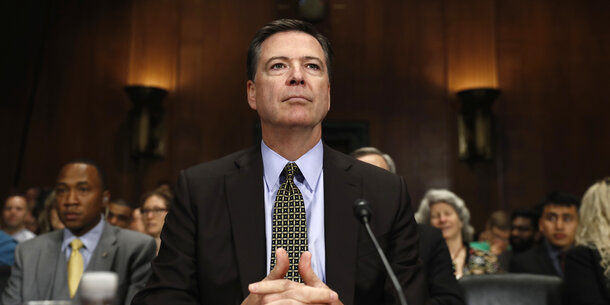You’re reading The Briefing, Michael Waldman’s weekly newsletter. Click here to receive it in your inbox.
In August 1980, Lech Walesa was a young electrician with a bristling mustache, trapped in the stultifying dictatorship of Communist Poland. He climbed over a security fence at the Lenin Shipyard in Gdansk and led a strike that gave rise to the independent labor union, known as Solidarity. Soon the group’s goals expanded. One-third of the country joined Solidarity — teachers and lawyers and professors and priests. It became a civic and independent force.
The next year, the government declared martial law. Walesa was arrested. But in 1989, his movement toppled Communism in Poland, a peaceful revolution that swept the rest of Eastern Europe. Walesa served as his country’s president for five years and steered its transition to democracy and free markets. He won the Nobel Peace Prize.
Lech Walesa, in other words, knows something about fighting tyranny. And he knows that what matters is not only what you’re against, but what you’re for.
Despite launching a revolution more than four decades ago, Walesa is younger than Joe Biden and only a little older than Donald Trump. On Saturday, Walesa spoke at the Jacob Javits Convention Center in Manhattan. Jaunty and white-haired, he leaned against a podium and held forth.
Poland, like the United States, has seen a retrenchment, a rollback of the rule of law, and threats to democracy. The Polish center-right and center-left joined hands to oust the populists and return to office.
Echoes of our current dilemma are hard to miss. Anne Applebaum, the Atlantic writer married to the Polish foreign minister, spoke about having attended a No Kings march earlier in the day. (About half the audience applauded. Others winced.)
Walesa had pointed, and at times surprising, things to say. Only one Western leader, he declared, had the “cojones” (as it was translated from Polish) to act to secure Poland. Was it famed Cold Warrior Ronald Reagan? No. “Bill Clinton,” he said. “Without Bill Clinton, we would be Ukraine.” Clinton secured Poland’s entry into NATO and the European Union. In fact, Walesa proposed that Clinton be awarded the Nobel Peace Prize.
He described the broad coalitions needed to fight authoritarianism, both in the 1980s and today.
What struck me, in this American moment of what can feel like do-or-die conflict, was something he said about how to win change. It is not enough to be against authoritarianism. What is our shining vision for the future?
Walesa even urged reforms that might sound familiar.
Presidents should be limited to two terms, he said. Vladimir Putin — who runs a “gangster government” — could not have consolidated and abused power without the extra years in office. (It was unclear whether he knew that the U.S. Constitution already imposes that limit — let alone that Trump threatens routinely to run for an illegal third term.)
A reform agenda must also focus on corruption, he declared. Transparency is vital. That’s good political advice, if nothing else. A CBS/YouGov poll fielded in July found that Americans now believe corruption to be the greatest threat to U.S. interests, followed closely by the weakening of our democracy.
Today, with the federal government shut down, troops on the streets, and the Supreme Court seemingly poised to destroy voting rights, it can be hard to do more than respond to events. But we should heed Walesa’s words and example.
The No Kings rallies were huge and inspiring. They were patriotic to the core. It is necessary to have numbers and to break the spell of inevitability.
But the next phase cannot start soon enough. We will work to craft the next generation of reforms to make government work better. We need to think big — to overturn Citizens United, ensure that everyone has a meaningful right to vote, enact term limits for Supreme Court justices, and more. We must craft a full agenda to make government work after the wreckage. To restore the independence of the Justice Department. To curb presidential emergency powers. And at the same time, to protect the environment, provide health care, ensure economic competition, and more.
The Gdansk strike, after all, started over higher prices. When average Poles concluded the economic system truly was not working for them, they found the courage to challenge abuse of power. We don’t need to vault over any fences to start our solidarity movement.






